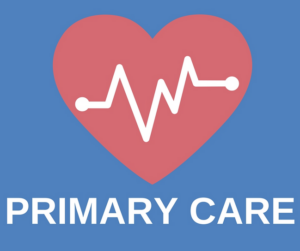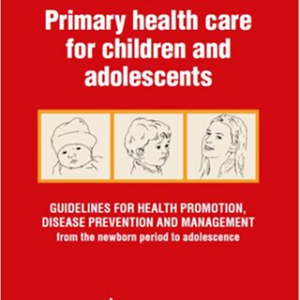NRNP 6541: Primary Care of Adolescents and Children Midterm Exam
 The primary care of adolescents and children is a crucial aspect of pediatric nursing, which focuses on the health needs, development, and well-being of young patients.
The primary care of adolescents and children is a crucial aspect of pediatric nursing, which focuses on the health needs, development, and well-being of young patients.
In this article, we will explore key aspects of pediatric nursing, including nursing exams, child health assessments, infectious diseases, and common pediatric conditions.
Understanding these areas is critical for nursing professionals preparing for exams, assignments, and clinical practice in pediatric health.
Primary Care of Adolescents and Children: Pediatric Nursing Overview and Exam Preparation
This guide includes example questions related to pediatric nursing, developmental milestones, and various health conditions, which can serve as a valuable resource for nursing students and professionals.

Struggling to meet your deadline?
Get your assignment on NRNP 6541: Primary Care of Adolescents and Children Midterm Exam done by certified MDs and PhDs in the USA. ORDER NOW!
Pediatric Infectious Diseases and Conditions
Pediatric infectious diseases are a significant part of pediatric nursing. Children are particularly vulnerable to infections due to their developing immune systems. Common pediatric infections include conditions like otitis media, otitis externa, and roseola. Understanding the management of these diseases is a vital component of nursing care for children. 
Example Questions on Otitis Externa, Mastitis, and Otitis Media
- Otitis Externa, also known as “swimmer’s ear,” refers to inflammation of the external auditory canal. It is commonly caused by bacterial or fungal infections resulting from water exposure. The condition is usually painful and characterized by itching, redness, and swelling in the ear canal.
Question: What is the primary treatment for otitis externa? A. Oral antibiotics
B. Antifungal ear drops
C. Antihistamines
D. Surgery - Mastitis in breastfeeding mothers is another common issue in pediatric health. It can be caused by bacterial infections that lead to painful, swollen breasts. Nursing care for pediatric infections includes educating mothers on how to manage and treat mastitis while continuing to breastfeed.
Question: What is the most effective intervention for a mother diagnosed with mastitis? A. Discontinue breastfeeding immediately
B. Continue breastfeeding and apply warm compresses
C. Administer oral antibiotics and avoid breastfeeding
D. Apply ice packs to the breast - Otitis Media is an infection of the middle ear and is common in children. It can be caused by bacterial or viral infections, leading to ear pain, fever, and hearing difficulties.
Question: What is the most common cause of otitis media in children? A. Viral infections like the common cold
B. Bacterial infections like Streptococcus pneumoniae
C. Fungal infections
D. Allergies
Developmental Milestones and Red Flags in Children
Pediatric nursing also requires a deep understanding of pediatric developmental milestones. These milestones help nurses and healthcare providers assess the child’s physical, cognitive, and emotional development. Failure to meet milestones can indicate developmental delays or concerns that require further evaluation.
Key Questions on Child Development, Milestones, and Concerns
- Developmental Red Flags are signs that a child may not be reaching expected developmental milestones. For example, a six-year-old child who cannot print their name or has trouble throwing a ball may require further evaluation to rule out developmental issues.
Question: Which of the following is considered a developmental red flag for a six-year-old child? A. Difficulty holding a pencil
B. Inability to print their name
C. Challenges in throwing a ball
D. No concerns - Pediatric Growth and Development involves regular monitoring to ensure that children are progressing as expected. Nurses should assess physical growth (height and weight), cognitive abilities, and emotional development. Red flags in any of these areas may indicate the need for further assessments or interventions.
Question: At what age should a child be able to recite their name and address their age correctly? A. 2 years old
B. 4 years old
C. 6 years old
D. 10 years old
Nursing Assessment in Pediatrics
Pediatric Nursing Assessment is an essential part of the primary care of adolescents and children. The process includes gathering a comprehensive health history, performing physical assessments, and conducting appropriate screenings to identify potential health concerns.
Focus on Primary Care Exams, Health Screenings, and Patient Assessments
- Primary Care Exams in pediatric settings focus on routine health maintenance visits, growth tracking, immunizations, and early detection of health problems. During these exams, nurses perform developmental screenings, vision, hearing, and dental checks, and monitor vital signs.
Question: The CDC recommends that newborns undergo universal hearing screening at which age? A. Shortly after birth
B. At six months
C. At one year
D. Before kindergarten - Pediatric Health Screening involves evaluating a child’s health and developmental status at regular intervals. This includes looking for signs of common pediatric conditions such as asthma, diabetes, and obesity. Early screening for conditions like hearing loss or lead poisoning is crucial for early intervention.
Question: What is the first step in assessing a child’s overall health during a primary care visit? A. Perform a physical exam
B. Gather health history and developmental information
C. Check immunization status
D. Measure height and weight
Common Pediatric Conditions for Nursing Students
Understanding common pediatric conditions is critical for nursing students. These conditions can range from minor infections to more complex chronic diseases. Knowledge of these conditions prepares nurses for assessment, intervention, and ongoing management.
Key Questions on Tinea Corporis, Roseola, and Pityriasis Rosea
- Tinea Corporis is a fungal infection commonly known as ringworm, characterized by a ring-shaped, itchy rash on the skin.
Question: What is the primary treatment for tinea corporis? A. Oral antifungals
B. Topical antifungal creams
C. Antihistamines
D. Corticosteroid creams - Roseola is a viral infection that primarily affects infants and young children. It begins with a high fever followed by a rash. While it’s usually mild, understanding how to treat and manage roseola is essential for pediatric nurses.
Question: What is the most distinguishing feature of roseola? A. Severe abdominal pain
B. A rash that appears after the fever resolves
C. Diarrhea and vomiting
D. Skin peeling - Pityriasis Rosea is a common skin condition in children that begins with a large “herald patch” followed by smaller lesions. It usually resolves on its own but requires monitoring for comfort and preventing secondary infections.
Question: The herald patch is most commonly seen in: A. Tinea corporis
B. Roseola
C. Pityriasis rosea
D. Psoriasis
Pediatric Nutrition and Weight Concerns
Pediatric Nutrition is a vital aspect of pediatric care, as children’s nutritional needs are critical for their growth and development. Nurses must be familiar with proper breastfeeding practices, infant growth patterns, and concerns related to weight gain or loss.
Questions on Breastfeeding, Infant Growth, and Weight Loss Management
- Breastfeeding is the most recommended method of infant feeding. However, parents may have concerns about infant weight loss or poor feeding. Nurses should educate families on how to monitor feeding, diaper output, and growth.
Question: What is the typical weight loss for a newborn in the first week of life? A. 1-2%
B. 3-4%
C. 5-8%
D. 9-10% - A weight loss of more than 10% in the first week may require intervention. Nurses should reassure parents that some weight loss is normal but offer guidance on ensuring the baby is feeding well.
Question: At what point should a pediatric nurse be concerned about a newborn’s weight loss? A. More than 5% of their birth weight
B. More than 8% of their birth weight
C. More than 10% of their birth weight
D. Less than 5% of their birth weight
Nursing Care for Pediatric Infections
Nursing Care for Pediatric Infectious Diseases is an essential part of pediatric health care. From the management of ear infections to viral rashes, nurses play a key role in diagnosing, treating, and educating families on how to prevent and manage infections in children.
Exam Questions on Management of Skin and Ear Infections
- Otitis Media, a common ear infection, is one of the most prevalent pediatric infections. It can be caused by bacteria or viruses and is often treated with antibiotics when bacterial in nature.
Question: What is the most common bacterial pathogen responsible for otitis media in children? A. Streptococcus pneumoniae
B. Staphylococcus aureus
C. Haemophilus influenzae
D. Escherichia coli - Managing Pediatric Health Issues in Primary Care involves a multifaceted approach, including preventing infections, educating families, and providing necessary treatments. Pediatric nurses need to be equipped with the knowledge to identify, treat, and manage common pediatric conditions, such as respiratory infections, gastrointestinal issues, and rashes.
Question: What is a common symptom of Roseola? A. High fever followed by a rash
B. Rash on the palms of the hands
C. Persistent cough
D. Severe abdominal pain
Pediatric Endocrine Conditions and Nursing Care
 Pediatric Endocrine Conditions are also part of primary care nursing. Nurses need to be prepared to assess and manage conditions like diabetes and thyroid disorders, which require careful monitoring and patient education.
Pediatric Endocrine Conditions are also part of primary care nursing. Nurses need to be prepared to assess and manage conditions like diabetes and thyroid disorders, which require careful monitoring and patient education.
Key Questions on Pediatric Endocrine Management and Hormonal Issues
- Pediatric Growth and Development involves understanding and identifying signs of endocrine disorders, such as diabetes and growth hormone deficiencies. Early recognition and treatment are essential.
Question: What is a typical sign of growth hormone deficiency in a child? A. Excessive weight gain
B. Delayed puberty
C. Rapid growth spurts
D. Increased appetite - Thyroid Disorders can also affect growth and development in children. Nurses must assess for signs of hypothyroidism or hyperthyroidism, such as changes in energy levels, weight, and behavior.
Question: Which of the following is a common sign of hypothyroidism in children? A. Weight loss and hyperactivity
B. Constipation and lethargy
C. Increased appetite and irritability
D. Frequent infections and high fever
Conclusion
Pediatric nursing is an essential area of healthcare that focuses on the care and development of children and adolescents. Whether assessing common pediatric infections, developmental milestones, or managing complex health conditions, nurses must be well-prepared for various scenarios in pediatric primary care. By understanding pediatric infectious diseases, nutrition concerns, and endocrine issues, nurses can provide high-quality care to children and adolescents. This article provides essential exam preparation, clinical practice insights, and nursing care strategies for nursing students and professionals working in pediatric settings.

Dont wait until the last minute.
Provide your requirements and let our native nursing writers deliver your assignments ASAP.